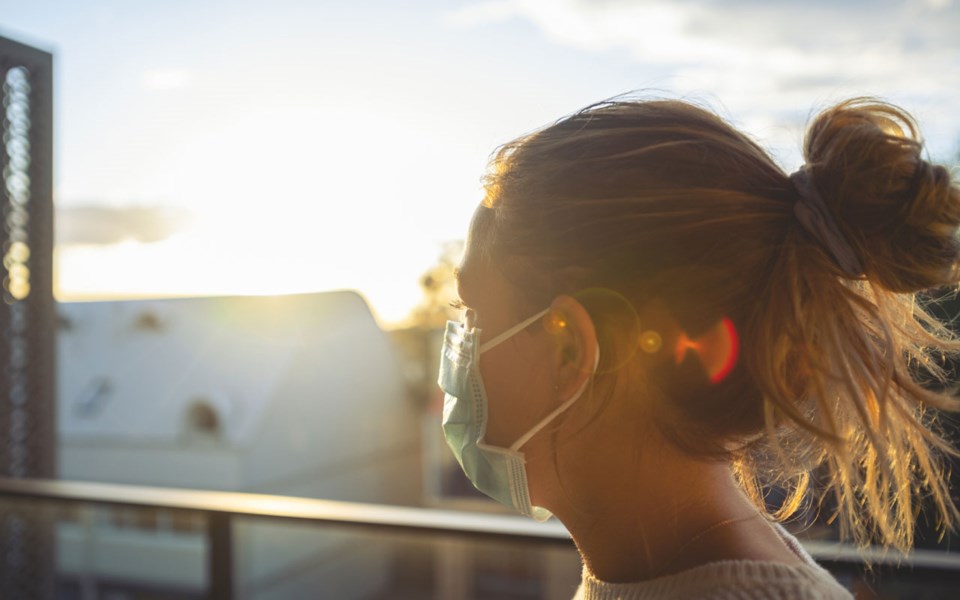A review of studies on children’s mental health in the wake of infectious disease outbreaks and natural disasters is raising concerns about what could be in store for B.C. youth.
The review, led by Dr. Charlotte Waddell, the director of the Children’s Health Policy Centre at Simon Fraser University, is predicting a significant increase in the number of kids with anxiety, post-traumatic stress, depression, and behavioural challenges due to COVID-19.
“If we don’t address this, we are really talking about what will happen to our next generation of Canadian nurses and teachers and frontline workers of all types and we cannot turn away from this,” Waddell said. “We cannot afford not to address this, to really keep the kids in the foreground.”
The review was released last week through the province’s children’s representative, Jennifer Charlesworth, who’s advocating for greater investment in mental health.
It analyzed 60 articles published over the last seven decades that looked at the impacts of past outbreaks like SARS and swine flu, as well as natural disasters.
One study, for example, explored the connection between infectious disease outbreaks and youth mental health. It looked at 369 children—20.9 per cent who had to isolate and 3.8 per cent who quarantined—then compared their post-traumatic stress symptoms to those who didn’t have to do either.
Of the children who had isolated or quarantined, 30 per cent had post-traumatic stress symptoms compared to 1.1 per cent of children who didn’t have those experiences.
While Whistler kids might have the added bonus of easy outdoor access during the pandemic, the concerns still ring true locally, said clinical counsellor Greg McDonnell.
“I think the next pandemic is mental health and, thankfully, the stigma around it is diminished and we’re talking about it and normalizing getting help,” he said.
Part of the reason kids are struggling during the pandemic is because of our inherent need for human connection.
“Human connection is the seed of all healing,” McDonnell said. “Without that, this is made all the more complex. And so we’re having to adjust what that looks like. We adjust classes and sports and isolation. It’s an adjustment.”
The key to helping your child through this time is threefold, he said.
First, normalize how they’re feeling, talk about it, and “then, lastly, manage your expectations,” he said. “The outcomes probably aren’t going to look like we hoped them to look.”
The review also found a strong correlation between parents being impacted by isolation and their kids following suit.
When parents met or exceeded the same post-traumatic stress threshold, 85.7 per cent of their children did too, compared with 14.3 per cent of kids whose parents did not.
“Kids are sponges and they’re looking to their models for how to respond to any novelty,” McDonnell said. “That novelty might be a fender bender or it might be driving through the Downtown Eastside and just witnessing what you witness there. It might be a pandemic. It might be family stress. They’re modelling our behaviour in terms of our response to it. I get the feeling parents are doing the best they can out there in these complex times.”
But it’s not all dire. The review concluded that the pandemic also presents an opportunity to focus on the social and emotional well-being of children and ensure their healthy development.
McDonnell said there are plenty of excellent counsellors and therapists in the Sea to Sky corridor. The focus needs to be on facilitating “discharge” so there’s less cumulative stress over time.
While Whistler might focus on physical discharge, or release, which is one facet, there’s also mental, spiritual and emotional discharge.
On top of that, “now is a great time to invest in who you’re going to be next as opposed to just sitting there frozen; a victim wondering what’s going to happen next,” he said. “For young adults, that’s how PTSD takes root—when you’re immobilized in the face of some event.”
Instead, kids should engage in “wild play” by getting outside, moving their bodies, and enjoying nature.
“I think we have to look at some old-time ways to engage kids,” he added. “Like board games, cards, things like that. That gives kids an alternative to screens. Screens are OK—we’re going to need them—but probably with some boundaries too.”
- With files from the Canadian Press, which produced parts of this story with the financial assistance of the Facebook and Canadian Press News Fellowship. n




